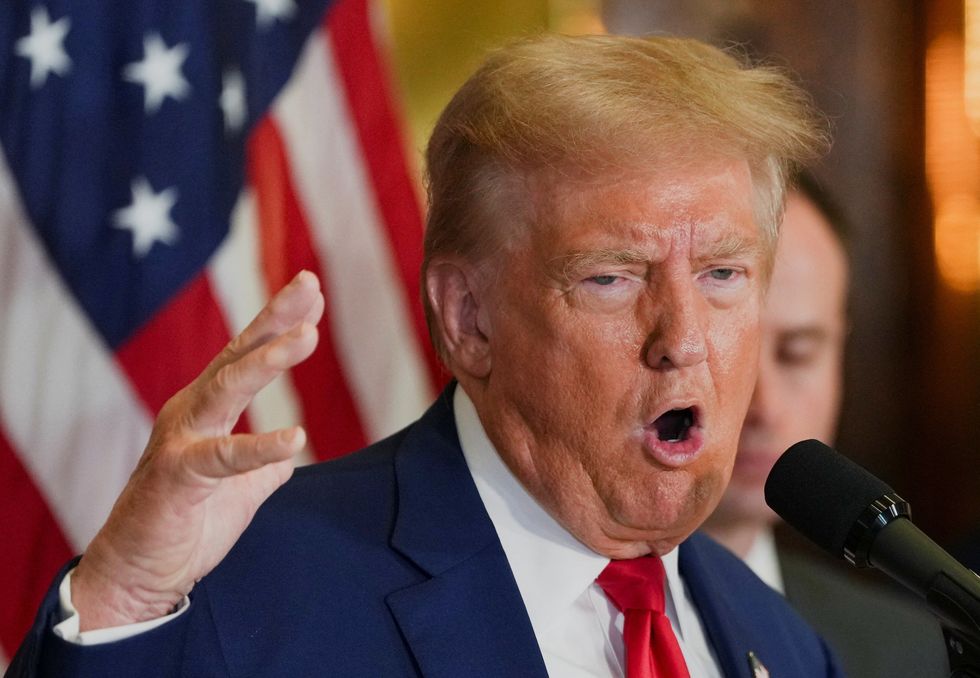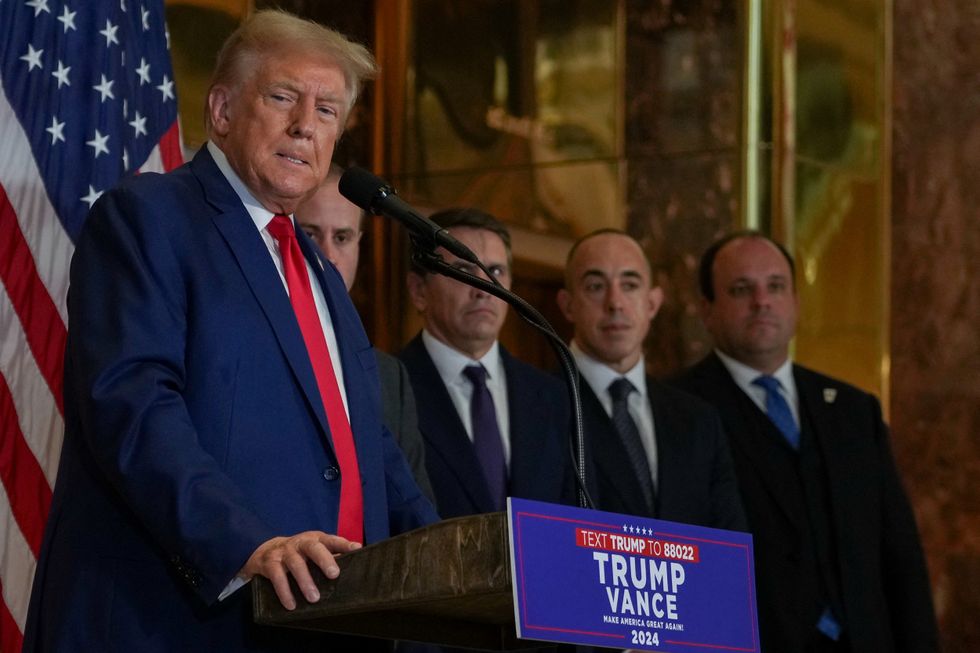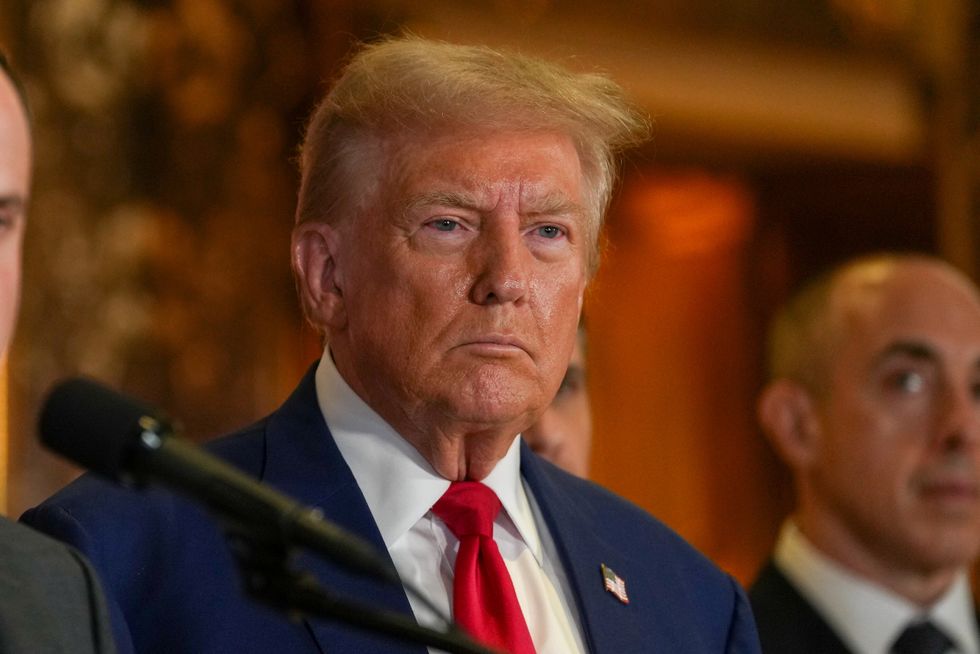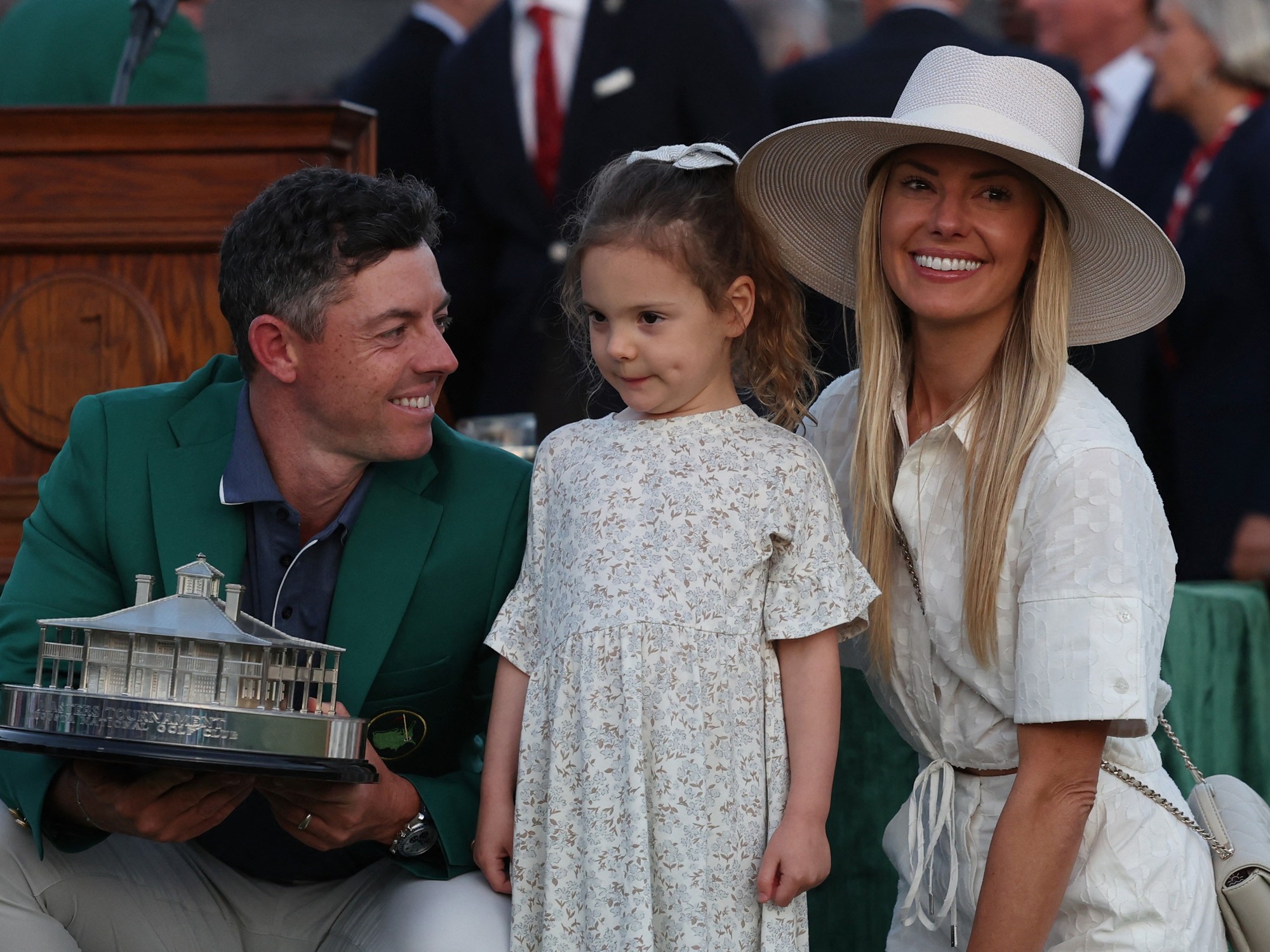Republican presidential nominee and former US President Donald Trump
Reuters
The Supreme Court recently found that presidents cannot be criminally prosecuted for their official acts
Don't Miss
Most Read
Trending on GB News
A New York judge has delayed Donald Trump's sentencing on charges stemming from hush money paid to a porn star until November 26, after the US presidential election.
The former US Presidenthad previously been scheduled to be sentenced on September 18, less than two months before the election.
Trump's lawyers had argued there would not be enough time before the sentencing for the defence to potentially appeal the ruling on Trump's request to overturn the conviction.
It comes after the US Supreme Court's landmark decision on presidential immunity.

Republican presidential nominee and former US President Donald Trump
Reuters

Former US President Donald Trump speaks during a press conference at Trump Tower
Reuters
Justice Juan Merchan said: "This matter is one that stands alone in a unique place in this Nation's history.
"Unfortunately, we are now at a place in time that is fraught with complexities rendering the requirements of a sentencing hearing, should one be necessary, difficult to execute."
Prosecutors with Manhattan District Attorney Alvin Bragg's office argued their case involved Trump's personal conduct, not official acts, so there was no reason to overturn the verdict.
But they took no position on Trump's request to delay sentencing, saying in an August 16 filing they deferred to Merchan on the question. The prosecutors said an appellate court could delay the sentencing anyway to give itself time to consider Trump's arguments, a move they said would be "disruptive."
LATEST IN THE RACE FOR THE WHITE HOUSE 2024:

Former US President Donald Trump
Reuters
In the first-ever criminal trial of a former or current US president, Trump was convicted on May 30 of falsifying business records to cover up his then-lawyer's $130,000 payment to adult film actress Stormy Daniels for her silence before the 2016 election about a sexual encounter she says she had with Trump a decade earlier.
Trump denies the encounter and has vowed to appeal the verdict once he is sentenced.
Falsifying business records is punishable by up to four years in prison, though punishments such as fines or probation are more common for others convicted of that crime in the past.
If Trump wins the White House, he could potentially order the Department of Justice to drop federal election interference charges against him. He would not have the authority to end the New York state case or an election interference case in Georgia.
Manhattan District Attorney Alvin Bragg also said Trump's court appearances required significant security and logistical planning and said there was a risk preparations could be made for his sentencing only to be called off.
Trump's six-week trial brought a heavy police presence to lower Manhattan.
George Grasso, a retired New York state judge who attended Trump's trial said: "[Bragg] is probably appropriately sensitive to opening himself up to charges from Trump and Trump supporters that he's being too political.
"He threaded the needle."








